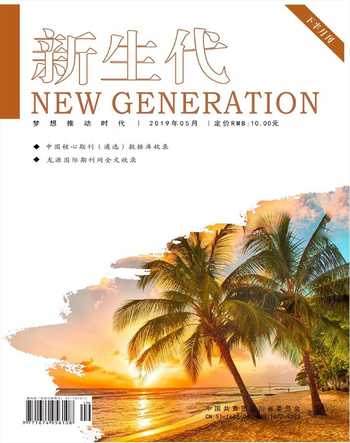Comparison and Appreciation of the Two Versions of The Letter to Lord Chesterfield
胡耀東
【摘要】:《致切斯特菲爾德伯爵書》是英國文學史上的名篇散文,通常被稱為“作家的獨立宣言”。從表面看來該封書信語言優雅精美,但實際上卻暗含諷刺。該書信的中文譯本為數不少,本文作者選取辜正坤先生的兩個中文譯本,即白話文譯本和文言文譯本對這封書信進行對比賞析。
【關鍵詞】:《致切斯特菲爾德伯爵書》 辜正坤 對比賞析
Comparison and Appreciation
Chapter I
Introduction
Samuel Jonson is a famous poet, essayist and critic in the history of British literature, and one of the representatives of British classicism. The book A Dictionary of English Language edited by him has made a great contribution to the development of English. In 1747, he decided to edited the first English standard authority dictionary under the advice of a book seller. He wrote some letters to a famous politician and literary sponsor namely the Lord Chesterfield in order to attain some supports.However the Lord refused him and gave him 10 ponds. This thing made him very angry. And in 1755, he finallyedited this dictionary by himself. When the Lord known this thing, he wrote two articles to prise Jonson and demanded that his name should be written in the preface of the dictionary. For this phenomenon, Jonson wrote a letter in reply to express his “thanks”, which is the famous letter the Letter to Lord Chesterfield. This letter is short and fluent, filled with elegant language and looks like very polite in words. This letter looks like a letter of thanks in formal, but actually it is a letter to criticize the nobles by the ironic art. In this letter, Jonson mocked the pride and tyrannical of Lord Chesterfield and showed his hardship of editing the dictionary. On the one hand, he showed he owed nothing to the Lord Chesterfield, on the other hand, he described the nobles’ features for fame vividly. Therefore, this letter is called the “the writer’s Declaration of Independence” to break away from the patronage of thousands time.
For the lexical level, he often choose big words from Latin, elegant wors from French and abstract words. In this letter, it can be seen the author use the capital “ I Have” at the beginning to attract the reader’s attention, and in the meantime, there are many capitals in the whole letter, such as Paper, Dictionary, Public, Patron and so on. It is not only the style of writing at that time, but also the author’s emphasis on some certain meanings.
Chapter II
Appreciation of the Two Versions
Mr. Gu Zhengkun is a famous professor at School of Foreign Language, Peking University. The author of this thesis selected two versions from Gu’s translation to compare and appreciate this famous letter.
From the stylistic point, the two versions are conform to the characteristics of the letter. But in dealing with the date, the classical Chinese version (version 1) translates the “7th February, 1755” into “一千七百五十五年二月初七” because at that time, the United Kingdom used the Gregorian calendar year, however the “初七” is the Chinese lunar calendar. For the vernacular version (version 2) Mr. Gu translated it into “1755年2月7日” is more equal to the original text. In terms of salutation, the version 1 translates it into “大人閣下”; the version 2 translates it into “伯爵大人”. The “大人閣下” implied the author’s intention extend the distance from himself to the Lord Chesterfield, it sounds more colder. The version 2 “伯爵大人” sounds more intimate than version 1.
Jonson has a large stock of information, and often cites some classics. It can be found that the fourth paragraph used a literary quotation. Due to the cultural differences between the West and the East, many Chinese readers cannot understand these allusion, thus the translator need to explain it. For this phenomenon, the two versions did well, “The Shepherd in Virgil grew at last acquainted with Love,and found him a Native of the Rocks”,from this sentence,the phrase “a Native of the Rocks”, Mr. Gu Zhengkun translated it into two different words: the version 1 translated into “草野之夫”, whereas the version 2 is “巖穴土人”. The latter translated it in literally, but the former explain it’s inner meaning for readers to understand it.
Chapter III Conclusion
Due to different cultural background and times, it’s difficult for the translator to ?combine the style and form of the original text when translating. The author ?benefited a lot from the comparison and appreciation of the two different versions.
For a certain word, different translators have different understanding, thus have different versions. For a certain text, it can be translated into classical Chinese style or vernacular version, even more, some translator may rewrite it into a story, a short novel or a long poet. By comparing these different texts, we can learn how to select the most suitable words, phrase, and sentences according to different contexts and needs. It can be seen that translation criticism and appreciation play an important role in improving our translation theory and translation practice ability.

